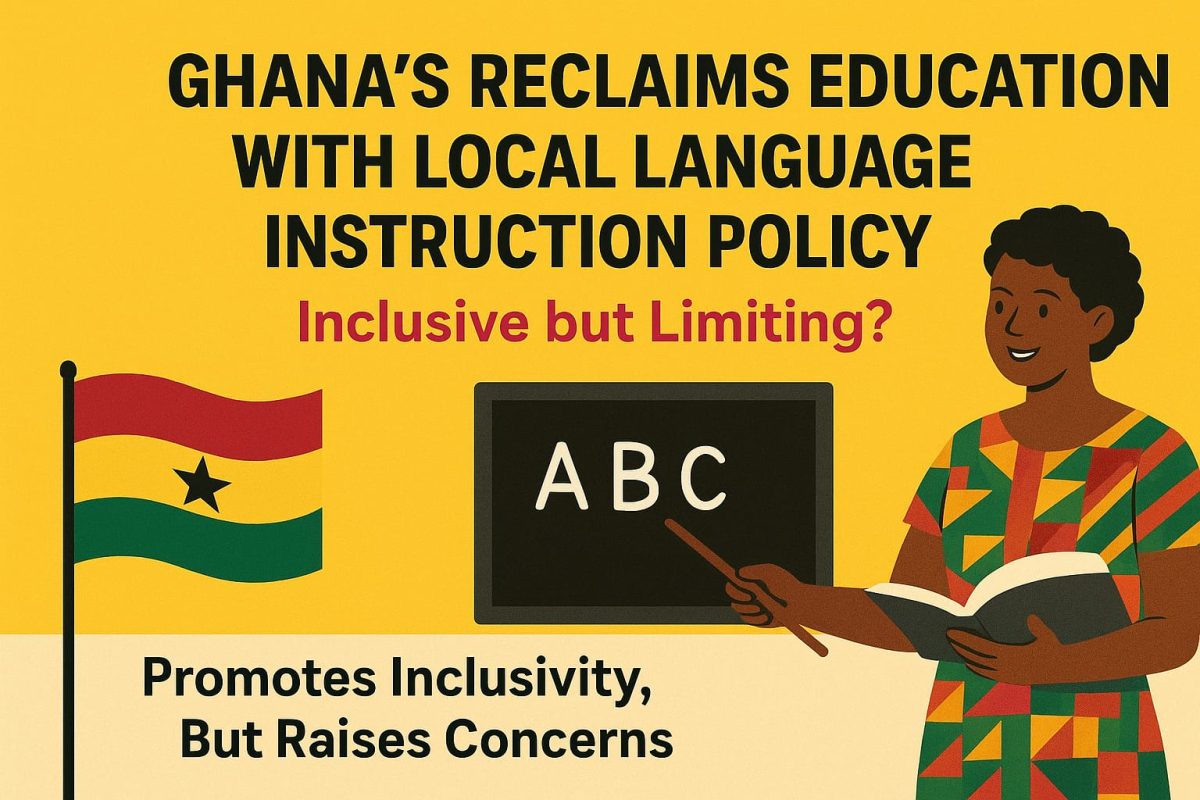Written by Alice Njoki
Ghana’s government has taken a significant step by making the use of local languages compulsory as the main medium of instruction in early basic education. Announced on October 24, 2025, by Ghana’s Education Minister Haruna Iddrisu, this policy requires teachers to instruct children from Kindergarten to Primary Three, primarily in their mother tongue or the dominant local language in their area.
This move aligns with longstanding global research, including findings by UNESCO, which affirm that children learn more effectively and confidently when taught in their native language during their early years.The policy is a bold attempt at inclusivity, aiming to protect Ghana’s cultural identity and reconnect education with the linguistic realities of its people.
After decades of English dominance, a colonial legacy, this reform marks a reclaiming of cultural heritage through education. It is a progressive move that might inspire other African nations to follow. However, despite these promising goals, the policy contains limiting elements.
Ghana is home to over 70 languages, and realistically, not all can be accommodated in classrooms, especially in linguistically diverse urban centers where students may speak different native languages. Choosing one dominant language in such settings risks excluding some children or complicating effective communication.
Additionally, the practical challenges are significant. Most teaching materials are still in English, and the translation of textbooks, along with intensive teacher training to deliver lessons in multiple local languages, will require sustained efforts and substantial resources. Some educators have voiced concerns about the readiness of the school system for this transition.A potential limitation lies in how this approach might affect children’s English proficiency.
While local language instruction enhances early comprehension and cultural connection, reduced exposure to English during foundational years may hinder students’ future ability to compete in a global environment where English remains a key language of communication, higher education, and opportunity.
In essence, Ghana’s new policy represents an important experiment in inclusive education that seeks to balance cultural pride with educational needs. It embraces diversity but also surfaces the challenge of meeting diverse linguistic needs without compromising learners’ global prospects. Whether the reform will succeed depends on careful implementation, resource availability, and ongoing evaluation to ensure it truly serves all Ghanaian children.

